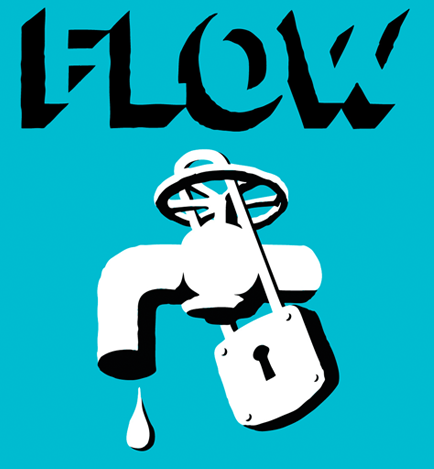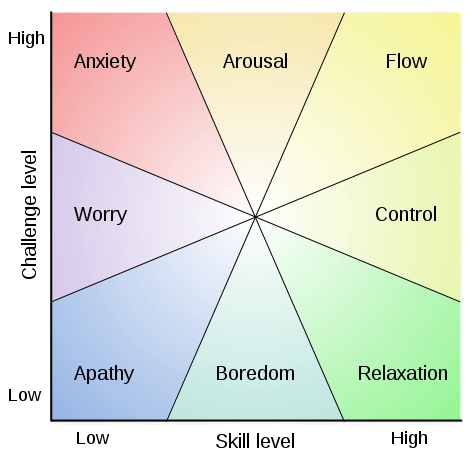Flow: The #1 Secret To Enjoying Your Work
.
You want to be experiencing “flow.” It’s when you’re so wrapped up in what you’re doing that the world fades away:
Flow is the mental state of operation in which a person performing an activity is fully immersed in a feeling of energized focus, full involvement, and enjoyment in the process of the activity… The hallmark of flow is a feeling of spontaneous joy, even rapture, while performing a task although flow is also described… as a deep focus on nothing but the activity – not even oneself or one’s emotions.
When do you usually feel flow? It’s when you’re challenged but not beyond your skill level. Passive activities don’t create flow. Neither do overwhelming challenges.
Via Finding Flow: The Psychology of Engagement with Everyday Life:
Flow is generally reported when a person is doing his or her favorite activity – gardening, listening to music, bowling, cooking a good meal. It also occurs when driving, when talking to friends and surprisingly often at work. Very rarely do people report flow in passive leisure activities, such as watching television or relaxing.
There are a handful of things that need to be present for you to experience flow:
Via Top Business Psychology Models: 50 Transforming Ideas for Leaders, Consultants and Coaches:
- Clear goals that, while challenging, are still attainable.
- Immediate feedback.
- Knowing that the task is doable; a balance between personal skill level and the challenge presented.
- Strong concentration and focused attention.
- The activity is intrinsically rewarding.
Finding that balance between challenge and skills is best illustrated by this chart:

This balance creates a pleasurable state for our brain. We’re not happy when our mind wanders and we’re not happy when we’re doing nothing. We’re happier when we’re busy.
What can you do to increase the flow you feel at work?
First, figure out what brings you flow already and think about how to maximize those moments. Dan Pink offers an excellent exercise to help with that
Via Drive: The Surprising Truth About What Motivates Us:
- Which moments produced feelings of “flow”? Where were you? What were you working on? Who were you with?
- Are certain times of day more flow-friendly than others? How could you restructure your day based on your findings?
- How might you increase the number of optimal experiences and reduce the moments when you felt disengaged or distracted?
- If you’re having doubts about your job or career, what does this exercise tell you about your true source of intrinsic motivation?
Second, do your best to take your regular work activities and add in the factors that create flow.
Via Finding Flow: The Psychology of Engagement with Everyday Life:
…almost any activity can produce flow provided the relevant elements are present, it is possible to improve the quality of life by making sure that clear goals, immediate feedback, skills balanced to action, opportunities, and the remaining conditions of flow are as much possible a constant part of everyday life.
Third, significantly increasing the amount of flow you experience is often the result of using your unique talents — your “signature strengths.”
Via UPenn happiness expert Martin Seligman’s book, Authentic Happiness:
- Identify your signature strengths.
- Choose work that lets you use them every day.
- Recraft your present work to use your signature strengths more.
- If you are the employer, choose employees whose signature strengths mesh with the work they will do. If you are a manager, make room to allow employees to recraft the work within the bounds of your goals.
For more on flow, check out these books:
- Flow: The Psychology of Optimal Experience
- Finding Flow: The Psychology of Engagement with Everyday Life
- Drive: The Surprising Truth About What Motivates Us
Join over 280,000 readers. Get a free weekly update via email here.
Related posts:
New Neuroscience Reveals 4 Rituals That Will Make You Happy
New Harvard Research Reveals A Fun Way To Be More Successful
How To Get People To Like You: 7 Ways From An FBI Behavior Expert




